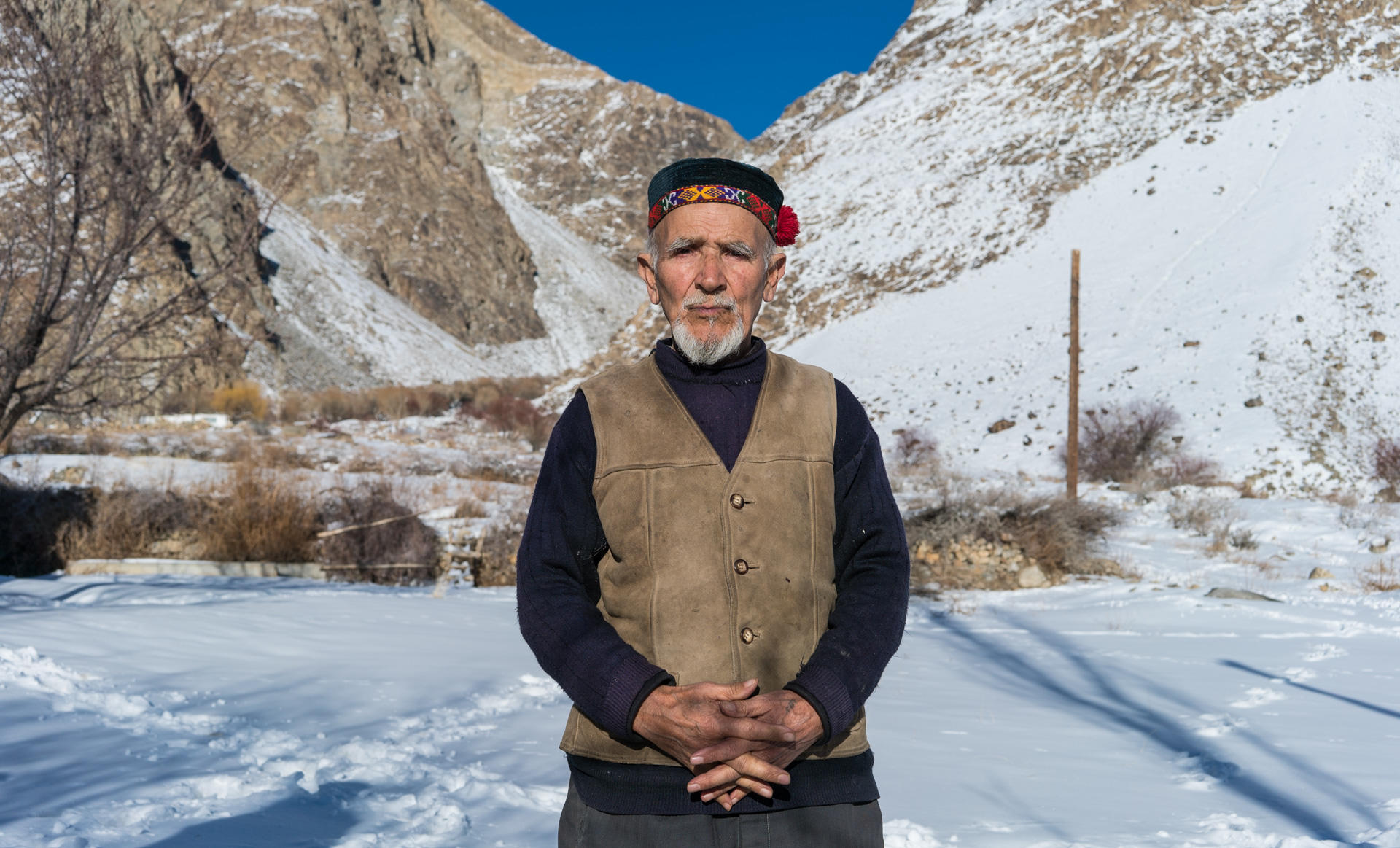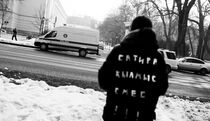Shirinbek Davlatmamadov is a doctor, surgeon, teacher and researcher. He takes interest in the history of Tajikistan, environment-related initiatives, traditional medicine and revival of indigenous languages of Badakhshan. Author of several scientific papers on traumatology, phytotherapy, Tajikistan environment, medicinal plants and mineral springs of Gorno-Badakhshan. As an environmental activist and advocate of ecological education, he supervised volunteer projects that engaged Tajik citizens as well as volunteers from European countries. Doctor Davlatmamadov trained apprentices from several generations of doctors and health care workers of Tajikistan. He has over 50 years of experience of working as a doctor. He performed over a thousand surgeries. Apart from decades-long active medical practice in different parts of Tajikistan, he worked for humanitarian missions in Afghanistan, participating in curing and saving lives of refugees and residents of different regions of Afghanistan. He saved lives and health of several thousands of people in Tajikistan and Afghanistan.
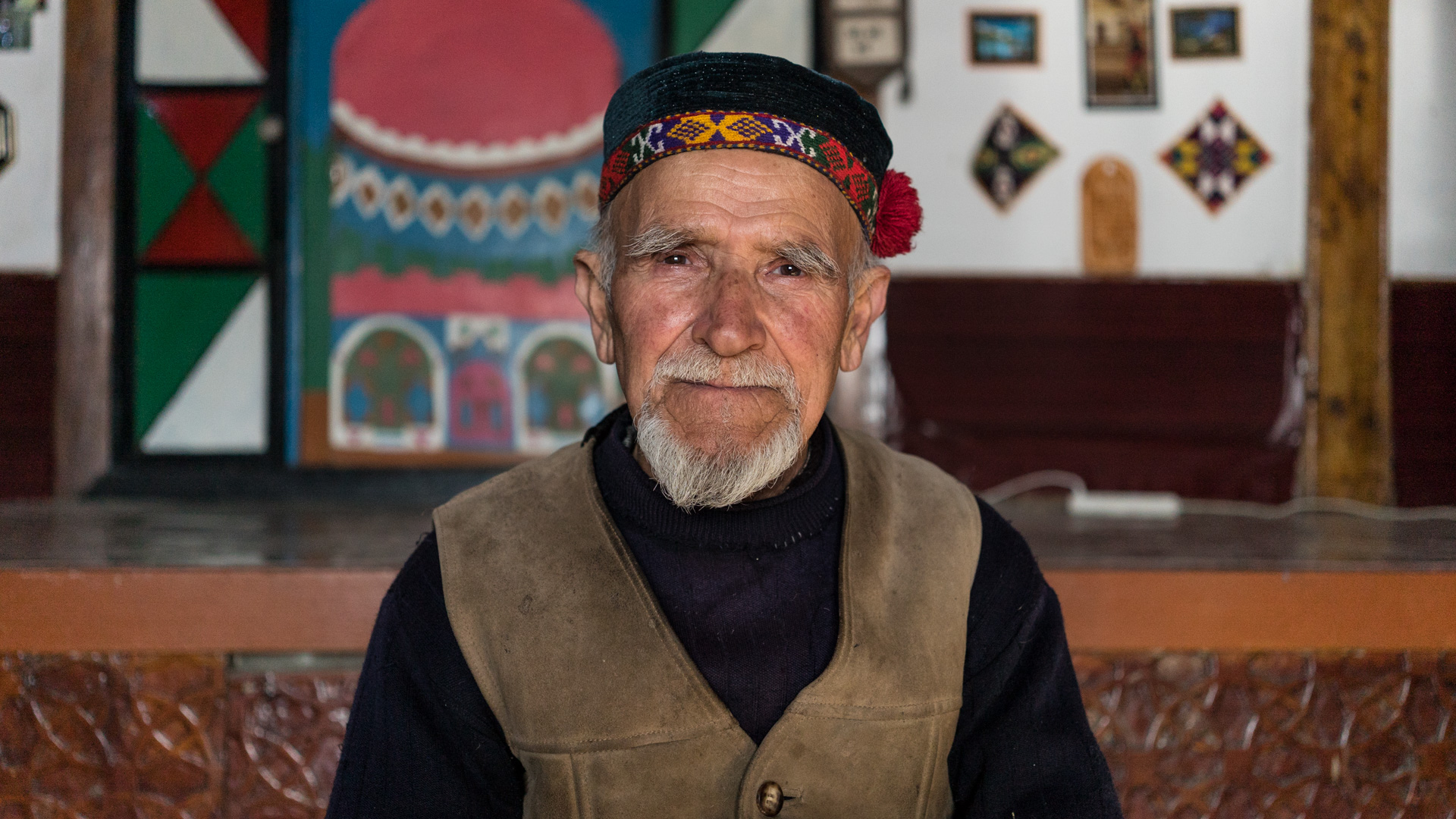
CHILDHOOD
My name is Davlatmamadov Shirinbek. I was born in 1939 here, in Ishkashim district (Ishkashim district — one of the districts in Tajikistan’s Gorno-Badakhshan Autonomous Region — Å).
I vaguely remember the war years (years of World War II — Å). I was a little kid back then, only three years old when the war started (the Third Reich invaded the USSR territory in summer 1941 — Å). During the war our people provided a lot of help to the front. Men went to the front and women would knit woolen gloves and our famous Badakhshan socks, give out tons of meat and send it all to the front. I remember it all as if it was in a dream. But I remember that it was hard, I remember people not having enough food; but everyone worked faithfully, shared food and helped each other out, just tried to survive. That’s what the life was like…
SCHOOL
The post-war years, when I just started school, were hard, too. I had to change several schools. In the first grade I studied in my qishlaq. Later we would go to a school in a neighboring qishlaq.
Those days schools used to be completely different — tiny adobe houses, no wooden floors, bare ground and chairs on the ground… We were short on clothes, didn’t have any shoes. So we would go to school barefoot. That school was five kilometers away from our village. But we would still study, even that way…
By the early spring the last food supplies would be out
We used to starve, too. By the early spring or summer the last food supplies would be out, almost nothing would remain. People would start collecting herbs and plants, then mash and eat them. People didn’t know about properties of those herbs. As I grew up and learned medicine and science, I realized that those herbs had healing properties. So, during the hungry years, trying to survive, people unconsciously not only fought hunger but also healed themselves from various diseases.
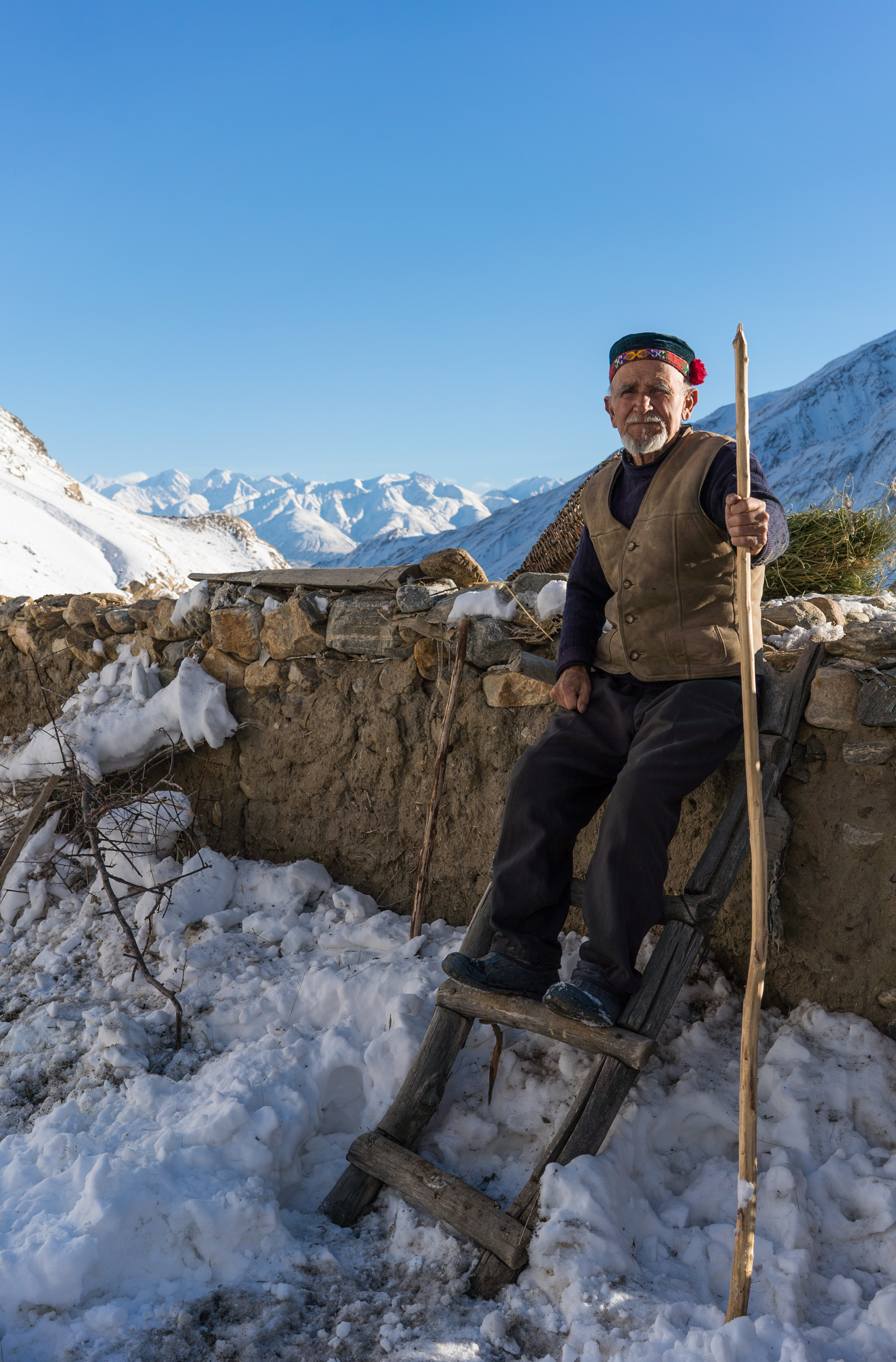
Growing up after the war, we starved. But my mother always kept a couple of flatbreads for wayfarers. For musofirs. She would hide bread from us in order to share it with hungry musofirs. That’s how our family treated wayfarers.
After the fourth grade of school I started an independent life, out of my parents’ control. After the seventh grade I studied in Gissar district at a boarding school. After the tenth grade I started to work in a printery — as a typesetter, packer and press operator. At the same period I was also studying in library and preparing to enter the medical university.
UNIVERSITY
I had been planning to enter the school of Chemistry and Biology, but then a single moment changed my whole life. I was at the library reading and preparing for the exams, when two men entered the reading room. One of them was Georgian, and the other one was Tajik.
The Georgian saw the books I was reading and got interested… I spoke Russian just a little back then. But we had a conversation and understood each other. He asked me, “What are you planning to study, darling?” I said I was going to go for Chemistry and Biology. He then said— with his Georgian accent, “Darling, why waste your time with frogs? Go to medical school!” The Tajik happened to be the chief of district hospital and the Georgian was the chief surgeon of the region.
I heeded the Georgian doctor’s advice and entered medical school.
We received a degree certificate and stomach ulcers within the same year
A student’s maintenance allowance at university was 15 roubles, then it was 20 and once a year it was raised by 2 roubles; in the sixth year we would receive 30 roubles. So, we graduated with this much money. And with stomach ulcers, of course. We used to joke that we received a degree certificate and stomach ulcers within the same year.
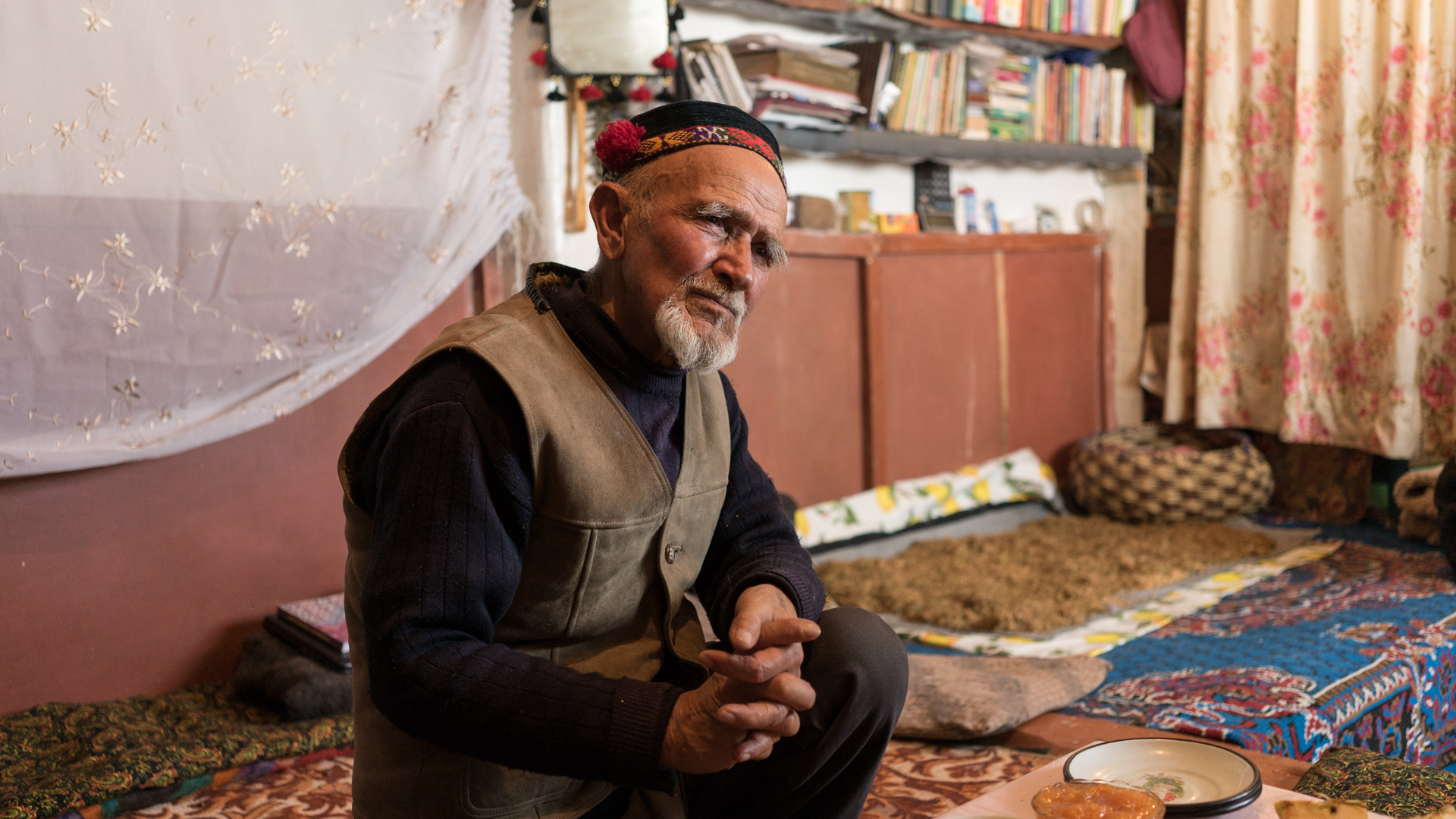
When we studied, our professors would not only teach us, but would always try to help their students when they faced life challenges. In those days students lived poorly, especially highlanders. And professors, even though there weren’t rich people themselves, helped us — boys and girls who came from all over Tajikistan.
In our freshman year we had Dora Naumovna — biological chemistry professor. She wasn’t just a teacher, she was like a mother to us — she loved us all… I remember one of my course mates got really sick. He had fever and blood spitting — it was pneumonia. Dora Naumovna noticed that he’d been absent for two days and when she found out about the symptoms, she took out 36 roubles out of her purse and made a list of medicines and food he should get. That’s the kind of person Dora Naumovna was. You just cannnot forget people like Dora Naumovna.
Back then students used to take money from their teachers. Nowadays they say it’s the other way around — some teachers take money from students. That’s bad, I don’t think I can understand something like that.
Academician Kamil Tajiyevich, professor Lakshina Yelena, anaesthetist Bovojonov Abdukhamit, head physician Azimov, urologist Akbarov, traumatologist Burkhanov, associate professor Zhukov Boris, Pyotr Asherov… My teachers are long gone, nobody’s left, but I always think about them. They taught me some very important things. Not only did they teach us to work right, cure people right and save their lives, but they also taught us to live right. That’s what matters the most. May the earth lie lightly upon them. Never will I forget them.
TANDUR
In the years of my childhood, adolescence and adulthood people would not suffer from any joint pain. Neither my brothers and sisters nor my parents ever complained of joint pain. Neither did they complain of kidney disease. It’s all thanks to healthy food and tandur*. In our family, once the bread was baked, everyone would sit around tandur. Dry heat that comes from it improves blood and lymph circulation, eliminates inflammations, and people don’t get ill.
Nowadays people rarely use tandur, they bake less and gather around tandur less. That is one of the reasons people now suffer from rheumatism, arthritis, polyarthritis, degenerative disc disease, kidney problems and female diseases more often.
*Tandur (tandyr) — traditional clay-made direct heat oven. The tandyr technology is wide-spread in Central Asia, Caucasus, Middle East, Latin America, the Balcans and other regions of the world. Used for baking bread and various dishes, it also has other rithual and medical uses.
Humans have biological and energy bonds with the environment. When the balance between a human and the environment is upset, both the human and the environs fall ill.
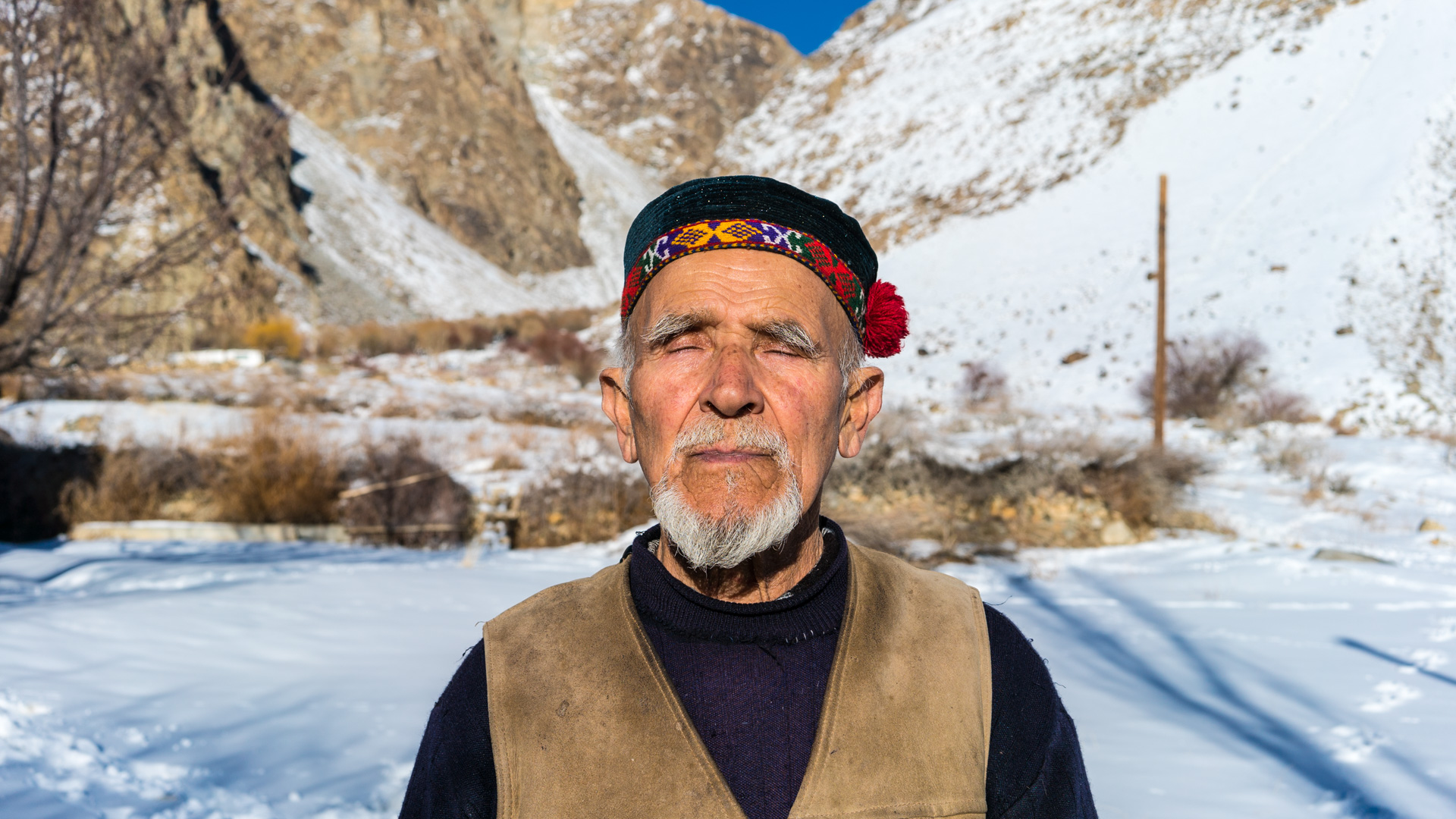
After graduating I came to the district hospital and started to work there. Back then I only had two people with hypertension in the whole district. They both were over 50. And now, one in two people has it. So many young people suffer from hypertension. Why so? It’s all because of the deterioration of the environment and because people started consuming wrong and incongruous products.
PRACTICE
There are quite a number of doctors in our family. I’m a doctor, and my wife is a veteran healthcare worker. My father was a bonesetter. My younger son is a vascular surgeon. My daughter Malika is a doctor too. So is her son. I have a nephew, Mobegim… she is also a doctor.
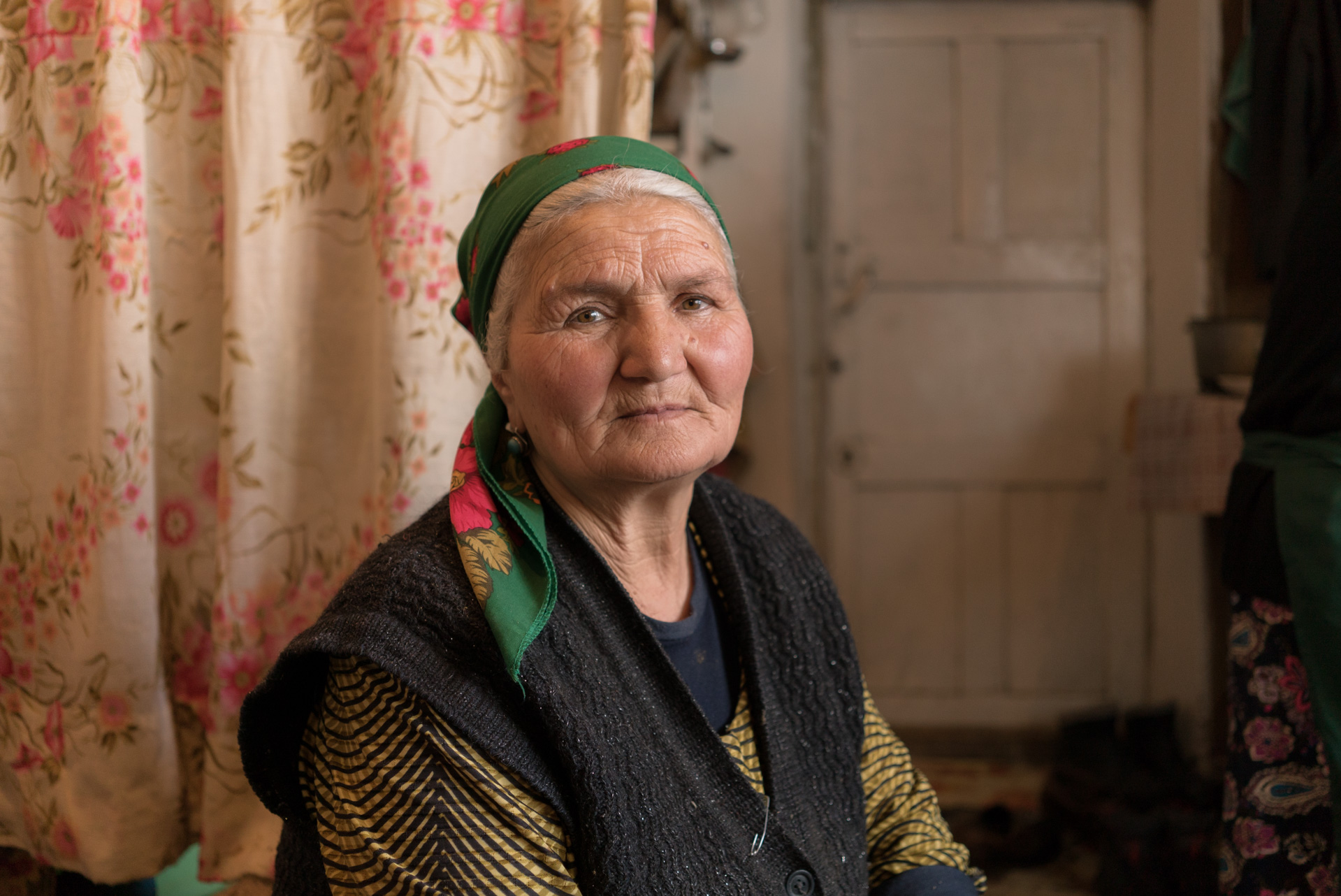
There was no ambulance, not enough medicines and instruments, no electric power in the village.
I am glad that now there are enough professionals in my district, there is electric light and ambulance. It was much harder when I was young.
When I came back to Ishkashim after graduating and started to work, it wasn’t easy. There was no ambulance, not enough medicines and instruments, no electric power in the village.
During the first years of my medical practice I would have patients with serious illnesses and injuries. I was young and had no one to ask advice from. There were no experienced doctors — just three doctors for the whole district. It was often a case that one of them falls ill, the other one is away and only one is left for the whole area. But life is life — sometimes you have to deal with everything on your own.
KHADICHA
My wife and I would work round the clock… We wouldn’t sleep. We’d spend days and nights in the hospital. We worked in multiple specialties. I am a surgeon, but quite often I had to work in other fields. I performed work in gynecology, trauma and pediatrics, I was a physician, too…
My wife and I have lived together for many years, we worked together and saved many lives together… Thank God, my wife is a doctor too. She’s always been very supportive, and we still have this understanding between us. When I was young, she used to work as an obstetrician. Together we performed deliveries, often with abnormal labor. We’d light kerosene lanterns, place them in an operating room, wash our hands — and start a surgery. That’s how we used to perform surgeries — by the light of a kerosene lamp. It’s a good thing we also had a flashlight. My wife would shine a flashlight on abdominal cavity and I’d work. I guess it is hard for you to imagine such working condition we had back then and how we would save people’s lives like that…
I think my wife and I still feel young and blooming. We didn’t forget how to feel the joy of meeting people, of interesting conversations, of smiles and jokes. It all gives us pure energy.
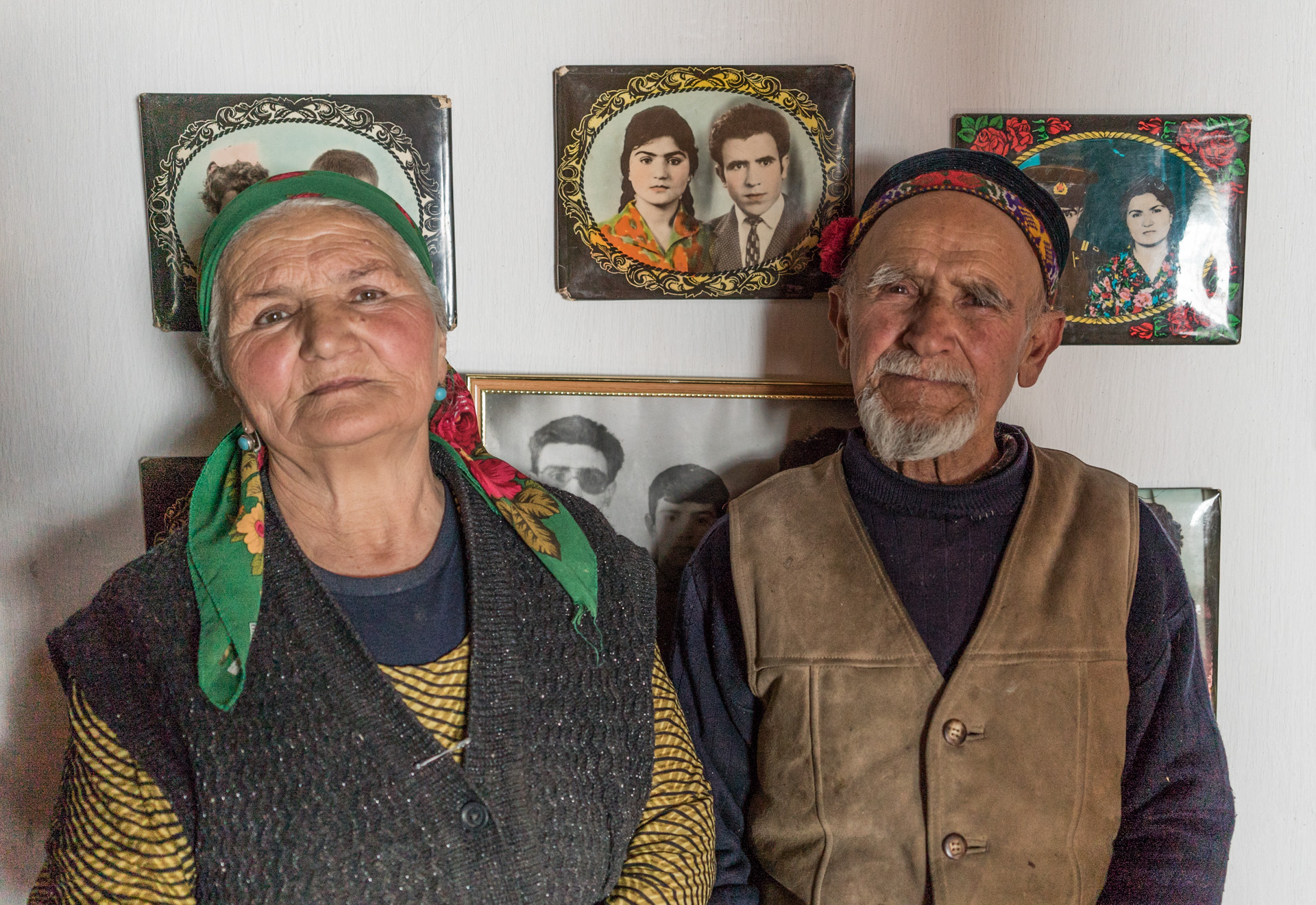
SHOBEGIM
When I was a young doctor, my course mate Vassiliy came to our district. He was an eye doctor, and we made medical rounds in qishlaqs. If anyone needed a surgery, we performed it. I operated with him although eye surgeries weren’t my specialty. A year passed, we had worked well, and then Vassiliy left. So I had to operate on my own. I am not an eye doctor, not an ophthalmologist, but since there was no one else around, I had to cope myself. I even performed an eye surgery for my aunt Shobegim. It was a difficult and risky surgery. She had a trachoma, both her eyes just stop seeing. I laid her on a table, she was scolding me and I said, “Go on, auntie, scold me, it’s ok. We’re family.”
She kept scolding, so I joked, “Auntie, if you die, they’re not gonna sue me for that, because you’re my aunt. And relatives wouldn’t press charges against me. But if you don’t die, you’ll be able to see and will thank me.” So, I made a surgery on both her eyes. Three days later I took off the bandage. Aunt Shobegim opened her eyes to see the world again and said, “Ah, Shirinbek, how wonderful! I can see everything!” She fell down at my feet, crying and laughing.
YOUTH
I undertook internship in Georgia. I didn’t notice any differences between us and Georgian people. I loved it there. People in Georgia are so kind and so free.
When I was young, I visited Kazakhstan for the first time. I worked in haymaking on virgin lands. Kazakh land is vast and even, you just take the wheel, drive and gather the wheat harvest. Then we would load the camels, wheelbarrows and road carts with wheat. In Kazakhstan I had a friend, Sherik, or — as you say it — Serik. Very kind man. In Kazakhstan I tried kumys for the first time. I didn’t know it had a proof. If you take a lot of kumys, you can get drunk.
My wife spent a year in Alma-Ata studying. I visited her with our daughter Malika. Malika was a little girl back then. We would walk around the city a lot. Alma-Ata is a beautiful city, with so many trees and plants. It’s covered with grass and flowers — just like a carpet. And mountains, of course — just right there.
When I was young, doctors didn’t have proper anaesthesia at their disposal. So we had to use ethers to anaesthetize. Just took a bottle and poured ether on a patients’ mask. Of course, it was a torture for both a patient and a doctor. Thank God, now it’s different. A surgeon can dance or do whatever he wants. It’s not medical instruments what matters the most for a doctor, but his desire to help and keep his soul kind.
UNITY
We, Tajiks, love eating plov from a shared dish. Kazakhs and Kyrgyz love eating beshparmak together, Uzbeks and Turkmens love eating together, too. And you know why? Because people seek unity.
To protect our countries from being ground down one by one by ill-wishers, we should be close-knit.
I remember how we all used to be brothers. I wish we remembered it now.
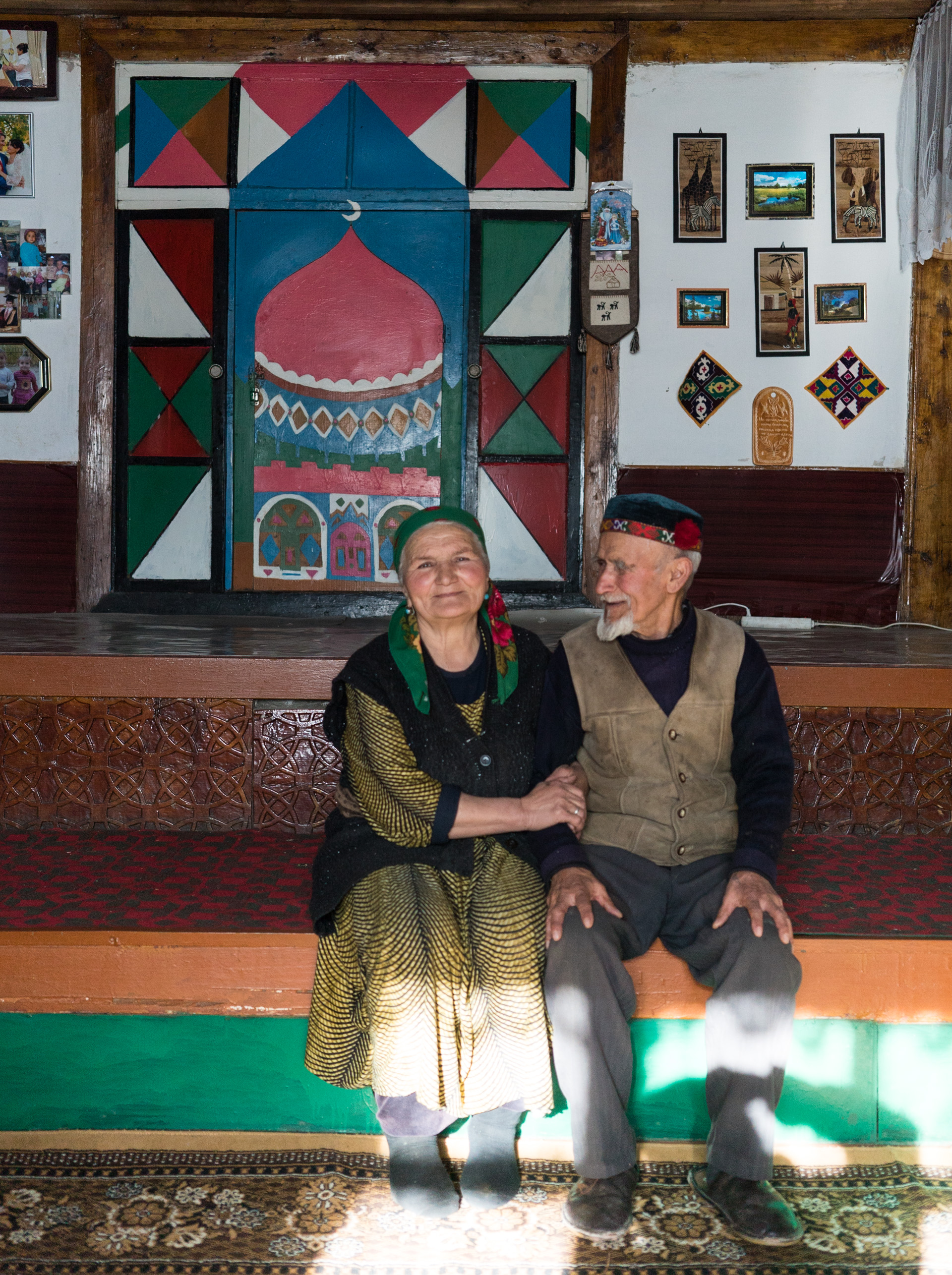
WAR
When the war started in Afghanistan1, we started to receive injured patients. We operated on them in the district hospital in Khorog. Then Afghan refugees who wanted to escape the war started to come to us. We offered treatment to all refugees who needed help. Those days our people banded together and started to help those refugees, collecting food, clothes and all the essentials for them.
I’m 79 now, but I don’t like being treated like an old man. They say, “Old man”, and I say, “Maybe you are an old man, but I am not. I am a young retiree!”
What helps me in my work? Certainly, it’s love. Love of my profession, love of my people, love of a human. And a great desire to remove or reduce someone’s pain.
A patient always diagnoses a doctor before a doctor diagnoses a patient.
I worked in general surgery, in trauma and orthopedics, vascular surgery, worked in a burn injury hospital… I performed five or six heart surgeries, operated on skulls and made craniotomies, performed after-trauma lung reductions several times, and stomach reductions, and liver surgeries, and cholecystitis treatments. So, there is no such organ in a human body that my hands did not touch. Well, maybe except for a pituitary gland.
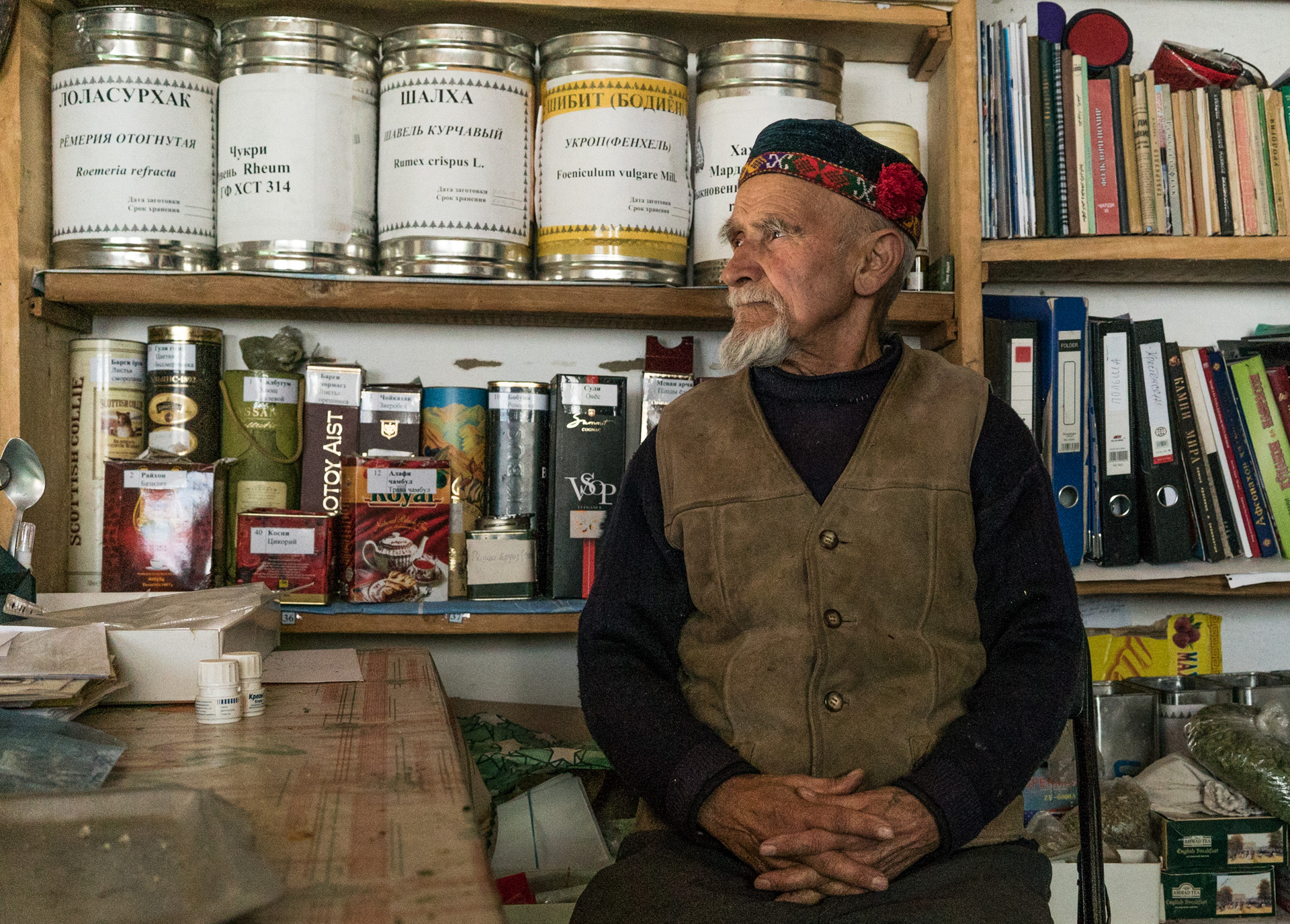
PEACE
Life made me learn about herbs and phytotherapy. When the civil war started in Tajikistan2, roads were closed, we had no medicines for first aid treatment, no food; people were starving. So I was forced to reach out to mother Nature. I started to practice phytotherapy. I would treat people with herbs, therapeutic mud, used alternative medicine’s techniques. So that’s how life made a professional surgeon turn into a phytotherapist, balneologist and folk healer.
We survived the hungry times. We survived the civil war. A lot of people died or gone missing. After all these trials of life all we want is just quiet and peaceful life.
The most important thing is peace.
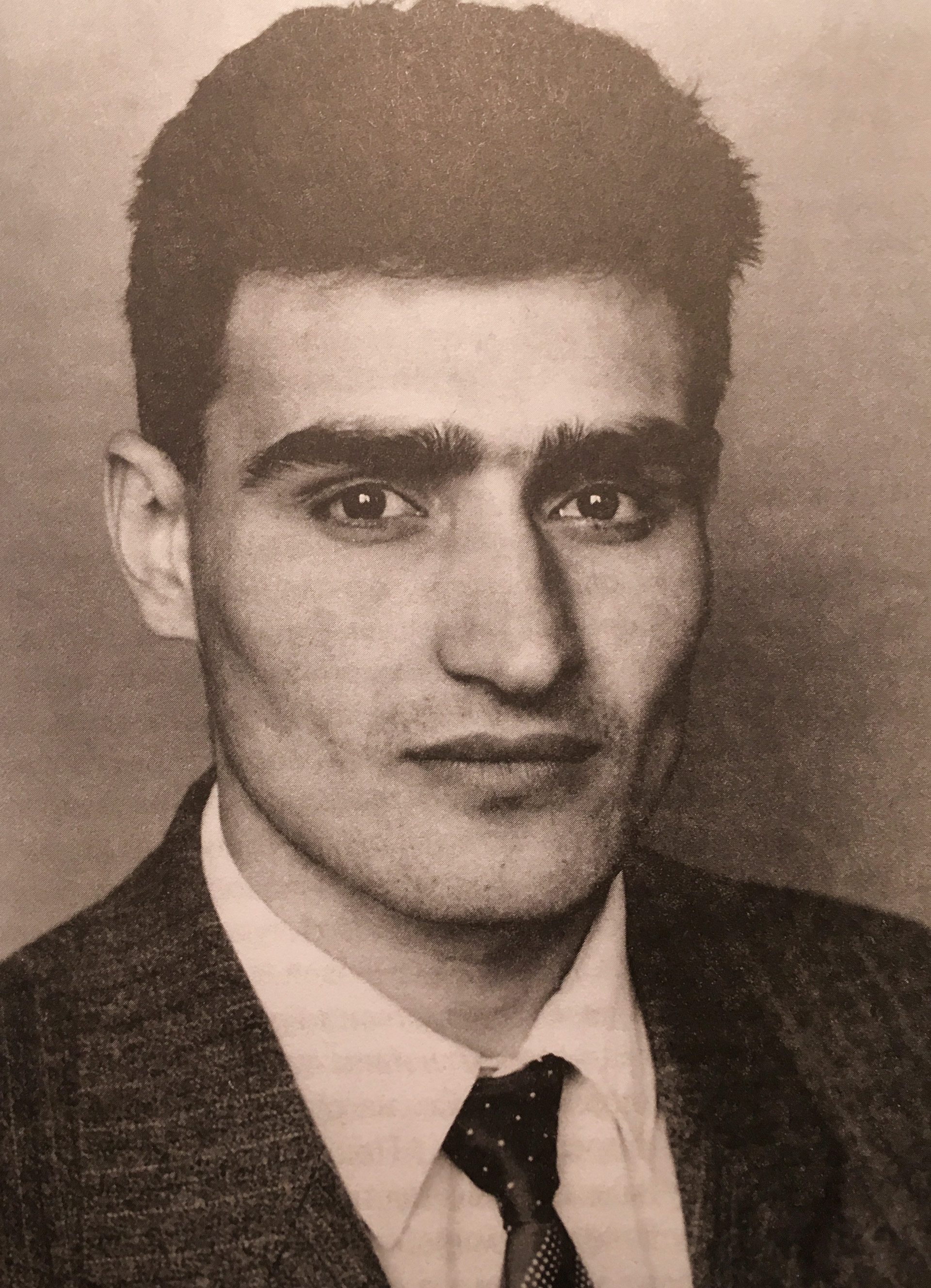
Jamshed Davlatmamadov — a poet, journalist, doctor Shirinbek’s son — went missing in 1992, during the civil war in Tajikistan. Author of lyrical and social writings.
The death toll estimates of the civil war in Tajikistan vary from 100 thousand to 200 thousand people; many citizens went missing. Among those who died or gone missing were dozens of journalists, human rights advocates and civic leaders of Tajikistan. According to the Human Rights Watch report, “at least fifty journalists were killed from 1992 to 1997, and some journalists' defense organizations reported seventy or eighty killed, and more than thirty publications closed. All sources concur, however, that not one perpetrator of these killings has been held accountable to date.” One of the missing journalists was Jamshed Davlatmamadov. In memory of Jamshed Davlatmamadov several books of his articles and poems were published. The names of Jamshed Davlatmamadov, as well as of other missing and killed journalists, were eternalized in the Journalists Memorial at Newseum in Washington, DC.
I issued several books of my own on medicine and phytotherapy. This year I am also planning to publish the Atlas of Badakhshan’s medical plants. And my wife wrote a book about our national cuisine. So that’s what our quiet life is like— we work, we read and we write. Whoever comes to visit us — we’ll be happy to greet them, our door is always open for guests.
A patient dies once. But a surgeon dies hundreds of times.
A patient dies once. But a surgeon dies hundreds of times. Each failed operation is a huge pain and enormous stress for a doctor. It destroys us — mentally and physically. Therefore, a true doctor must remember these simple words: Primum non nocere — “First, to do no harm.”
Sometimes a human can suffer from unbearable pain. We, doctors, study and work just so that we can remove or at least reduce this pain.
Live and learn.
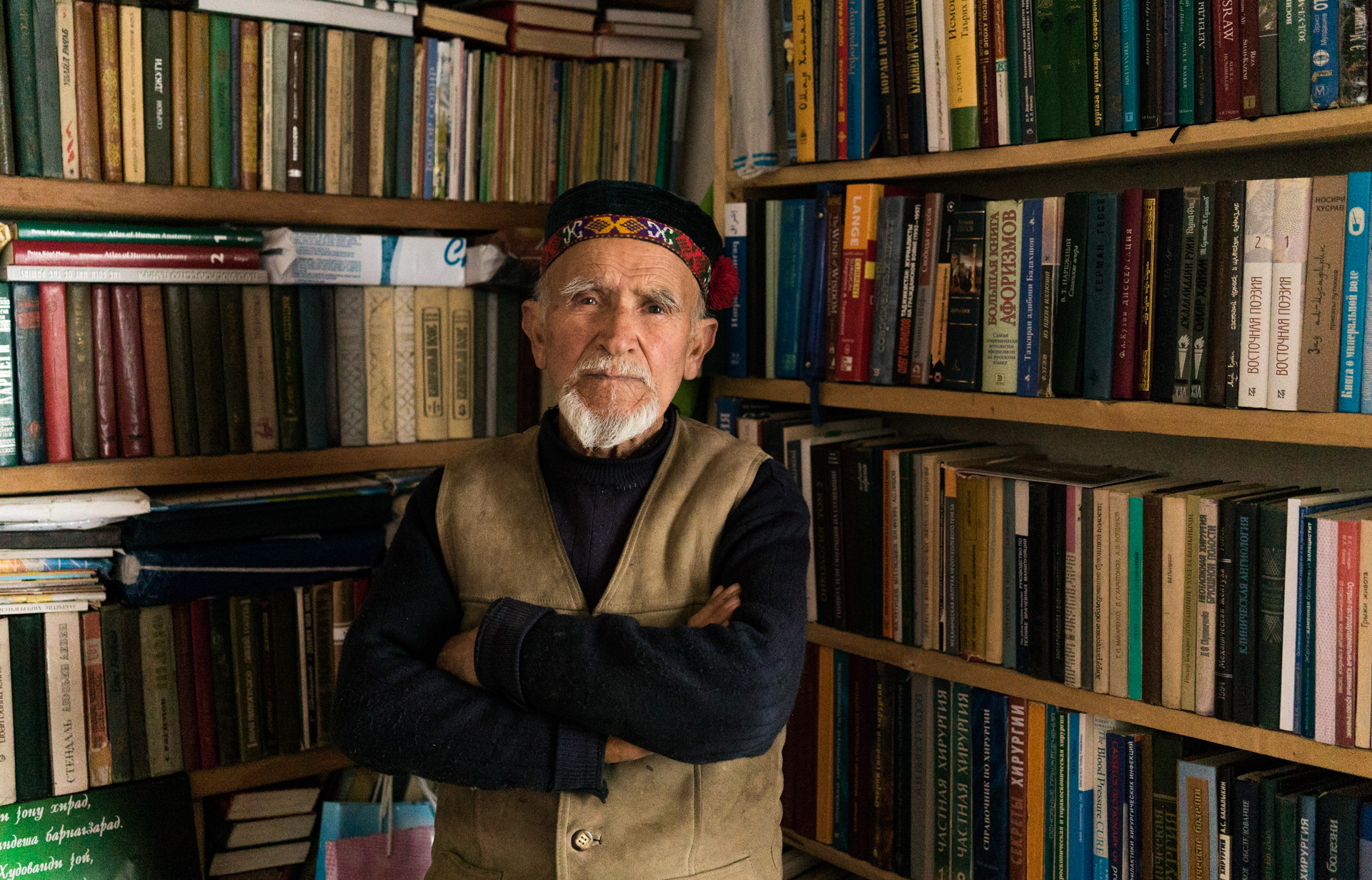
AFTERWORD
Doctor Shirinbek Davlatmamadov looks after his garden in his native qishlaq, writes books, breeds rabbits and continues to advocate eco values to the people of his district and volunteers from around the globe.
For his long-standing medical practice and for saving many people’s lives doctor Davlatmamadov was awarded with medical medals of different countries, the award for Excellence in Border Troops (for saving the lives of soldiers and officers of border troops) and the Honored Worker of Tajikistan award.
After retiring, doctor Shirinbek continues to provide treatment to people and save their lives.
The Adamdar.CA team would like to express gratitude for the help in preparing this article to their friends in Dushanbe (Tajikistan), Gorno-Badakhshan (Tajikistan) and Almaty (Kazakhstan): Daler Nazarov, Tolik Gadomamadov, Dastanbui Mamadsaidov, Aka Shoin, Umeda Kurbonbekova, Manucher Kadamshoyev, Dina Iglikova and Mirkhat Katauov. Special thanks to Soros Foundation-Kazakhstan team.
NOTES
1 / Soviet-Afghan War (1979-1989). In December 1979 special forces of KGB and Soviet Army performed an operation that resulted in killing Hafizullah Amin, the leader of Afghanistan. At the same time in different parts of Afghanistan a full-scale invasion of Soviet forces and occupation of the country’s strategic points started. In winter of 1979 and 1980 the mujahideen engaged in active opposition that later transformed to guerrilla war against Soviet troops.
Over fifteen thousand Soviet militaries died, over fifty thousand were injured. The war in Afghanistan lead to economic exhaustion of USSR and undermined the image of the Soviet Union around the world and became one of the main reasons behind the fall of the country in 1991.
Estimates of casualties among Afghan people vary from one million to two million people, most of which were civilians. Several millions of Afghan people were made refugees by the war and fled their country forever.
2 / Civil war in Tajikistan (1992-1997) is the major tragedy in Tajikistan’s contemporary history. It was characterized not only by massive violent conflicts between different groups of Tajik society, but also by the active influence from other countries. According to the Center for Journalism in Extreme Situations, the war resulted in around 150 thousand deaths among the country’s citizens. A significant number of civilians were subject to extrajudicial killing.
Civil war was the reason behind the outflow of a significant part of the population to neighboring countries and dozens of thousands of people becoming refugees.
Between 1992 and 2001 in Tajiksitan 54 militaries from Kazakhstan died, they served in Kazakhstan’s border troops and Kazakhstan’s peacekeeping battalion at the Tajik-Afghan border in Gorno-Badakhshan.
